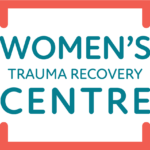
FREEDOM: Melissa Edwards freed herself from a violent relationship – she says the system must change to make it easier for other women to leave. Picture: Sylvia Liber.
Melissa Edwards calls for systemic change in approach to domestic and family violence
Melissa Edwards is warm, thoughtful and articulate. She’s also a survivor of domestic violence.
“I was this white, middle-class, educated woman – I come from privilege,” she said.
“I never imagined I would need to flee domestic violence. I never imagined I would be homeless.”
That’s the situation she found herself in four years ago, after leaving a relationship marked by insidious abuse that increased in intensity. Despite
Ms Edwards’ privilege, leaving was incredibly difficult, and the process only added to her trauma
“He was predictable in his unpredictability,” she said.
“As I dealt with police and the courts there was this greater threat that the people in those spaces could make decisions that put myself and my children in harm’s way. “The hard truth is the system often works to perpetuate domestic violence.”
As her case was going through the court system, Ms Edwards said she was fortunate to meet some “gems” who helped her navigate the challenges she faced.
But she was shocked by the number of professionals who didn’t understand, or didn’t care, about how trauma affected victims of violence.
She came up against systemic misogyny and victim-blaming.
“A manipulative ex can take advantage of that and use the court system to continue the control and the terror,” she said.
Ms Edwards is speaking out as part of the 30th anniversary of the Global 16 Days Campaign to end gendered violence.
A national push to reduce domestic and family violence by 80 per cent, and for 80 per cent of women who have experienced violence to get the support they need to recover is part of this year’s campaign.
A huge step towards that vision locally would be a dedicated Women’s Trauma Recovery Centre, an initiative Ms Edwards wholeheartedly supports.
“If we are serious about stopping the scourge of domestic violence, listen to front-line workers, listen to victim-survivors and the organisations that support them,” she said.
“Victim-survivors deserve access to effective trauma-specific therapies to support their healing. Establishing Women’s Trauma Recovery Centres that integrate health and justice support services for women traumatised by family, domestic and sexual violence will stop so many people from falling through the cracks.”
The Illawarra Women’s Health Centre has pushed for the NSW government to fund a local trauma recovery centre, which would be a one-stop shop for those fleeing abusive relationships to access the services they need, including psychological support, legal support, and physiotherapy. The business case for the centre, which would cost $10 million over three years to build and run, has been with the state government since July, with no response.



